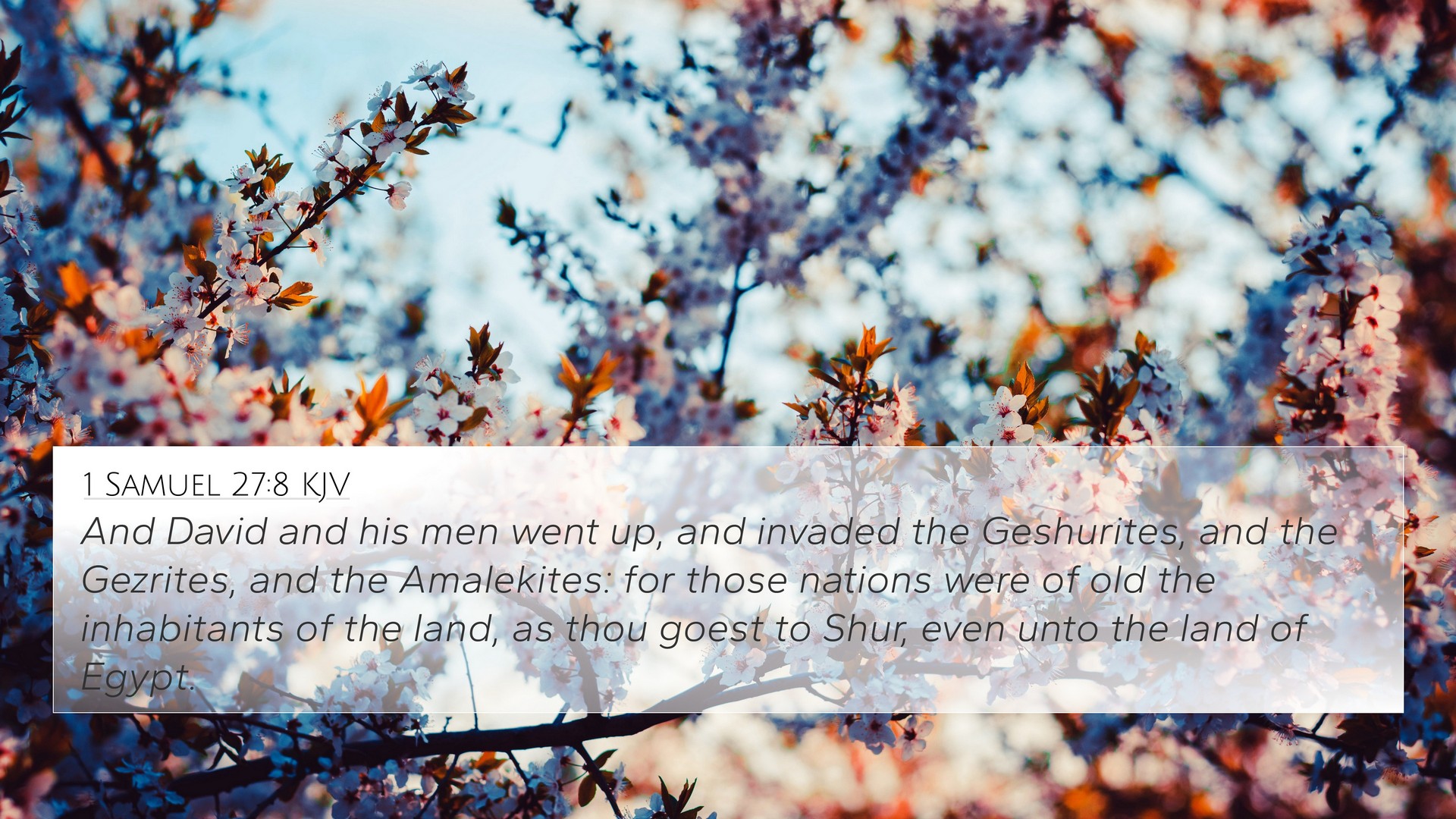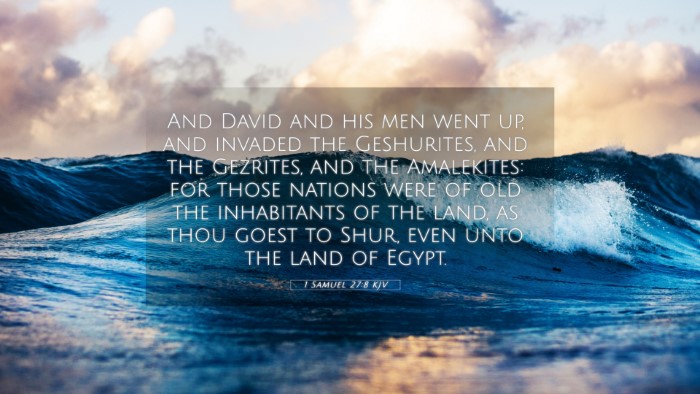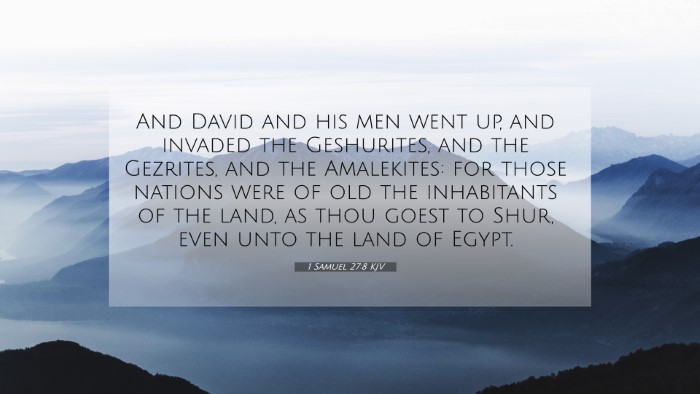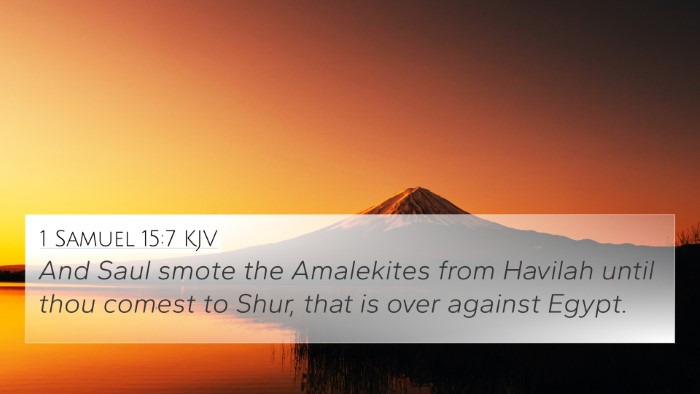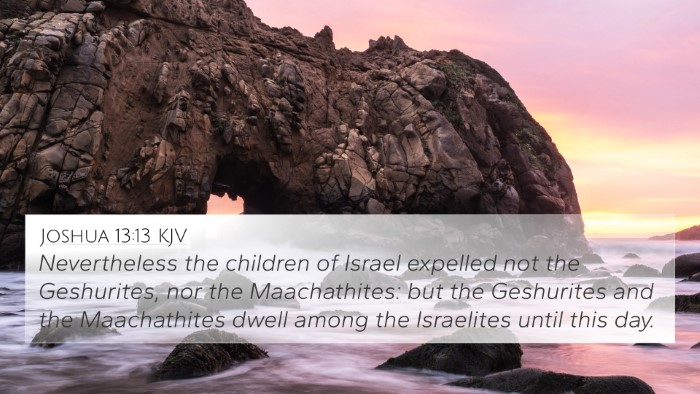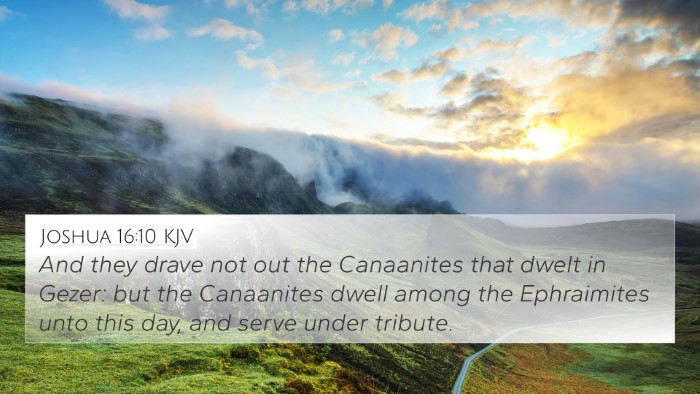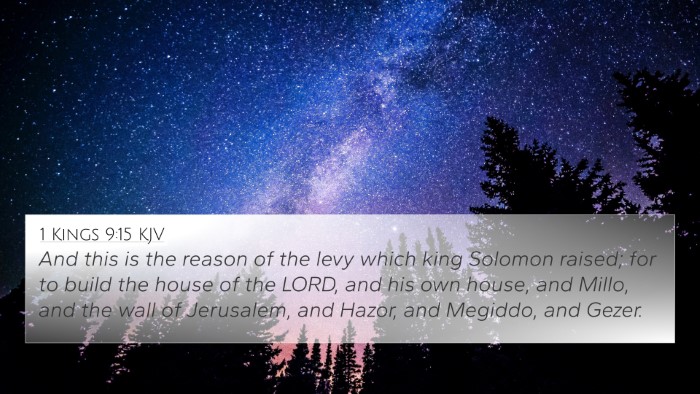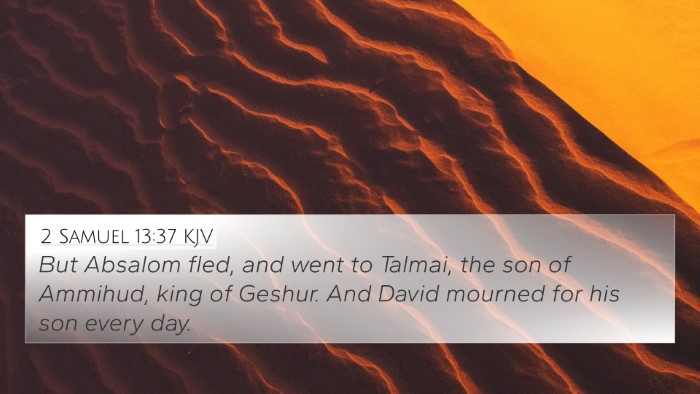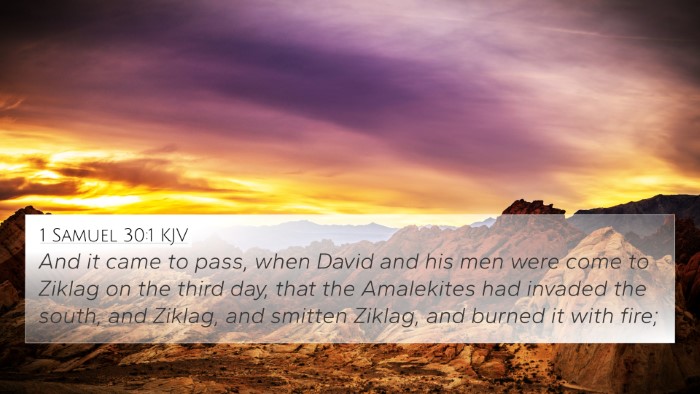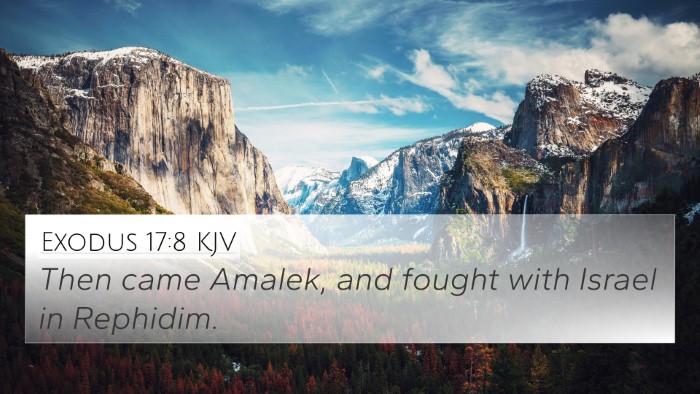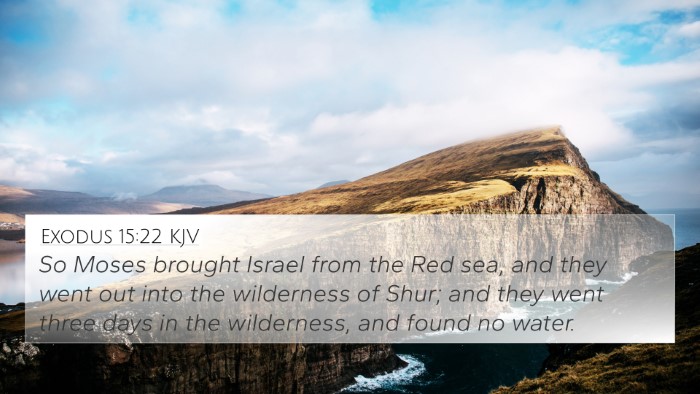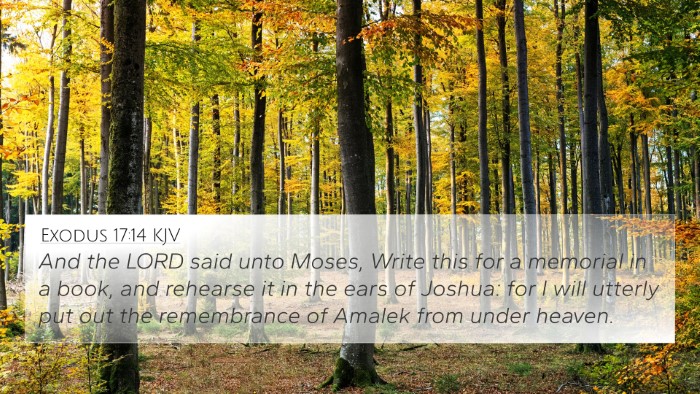Bible Verse Meaning: 1 Samuel 27:8
1 Samuel 27:8 states, "And David and his men went up, and invaded the Geshurites, and the Gezrites, and the Amalekites: for those nations were of old the inhabitants of the land, as thou goest to Shur, even unto the land of Egypt."
This verse marks a significant moment in David's life as he, along with his men, undertakes military incursions into the territories of various enemies. The implications of these actions can be understood through various commentaries, leading to a deeper comprehension of the verse's spiritual and practical meanings.
Analysis and Insights
Drawing from Matthew Henry, this passage encapsulates David's situation while he was in exile from King Saul. Henry notes that David's decision to attack the Geshurites and others shows his tactical responses to his precarious circumstances. Rather than hiding, David actively takes on a warrior's role, which indicates his leadership and strength amid adversity.
Albert Barnes further elaborates that these invasions were not merely military actions but served theological purposes too. By striking against the enemies of Israel, David aligns himself with God's plan to establish Israel and purge the land of its adversaries. Barnes highlights that David respected the cultures of these groups, understanding their historical presence in the land, which sheds light on the complexities of Israel's sociopolitical landscape.
Adam Clarke emphasizes the significance of the geographical references in this verse. He explains that Shur and Egypt represent not just physical locations but also spiritual symbols of David's growing authority and future as the king of Israel. The Amalekites, who historically opposed Israel, symbolize the persistent challenges believers may face in pursuing a godly path.
Connections with Other Bible Verses
This verse can be cross-referenced with several significant scriptures that highlight themes of warfare, God’s guidance, and leadership:
- 1 Samuel 15:3 – God's command to Saul to destroy the Amalekites.
- 1 Chronicles 12:1-3 – The account of David's supporters who joined him during his flight from Saul.
- Psalm 18:39 – "For thou hast girded me with strength unto the battle: thou hast subdued under me those that rose up against me."
- Judges 12:5 – The conflict with the Gileadites reminding us of the ongoing strife in the region.
- Exodus 17:14 – God's directive to “utterly blot out the remembrance of Amalek from under heaven.”
- 2 Samuel 8:12 – David's later victories over the Philistines, Moab, and others show how he fulfilled God's purposes.
- Deuteronomy 25:17-19 – A reminder of Amalek's opposition to Israel and the need for retribution.
Thematic Connections and Inter-Biblical Dialogue
The narrative in 1 Samuel 27:8 resonates with both Old and New Testament principles of leadership and spiritual warfare. David’s actions invite readers to reflect on how to find cross-references in the Bible, especially concerning warfare against sin and adversity.
Comparative Bible verse analysis can reveal how New Testament teachings in Ephesians 6:12 view our struggles not merely against flesh and blood, but also against ''spiritual wickedness in high places.'' David’s physical battles can be paralleled with the spiritual battles faced by New Testament believers.
Tools for Bible Cross-Referencing
For those looking to deepen their understanding, various tools for Bible cross-referencing exist, including:
- Bible concordance – To locate key themes and words.
- Bible cross-reference guide – Assists in understanding how verses interconnect.
- Cross-reference Bible study – A structured way to explore the scriptures.
- Bible reference resources – Helpful for sermon preparation and personal study.
Conclusion
1 Samuel 27:8 invites believers to engage deeply with scripture, encouraging an exploration of the connections between Bible verses and the thematic elements present throughout both Testaments. This verse not only reflects David's direct actions but also symbolizes the overarching narrative of God’s protection, guidance, and the call to rightly face adversities. By employing various methods of cross-referencing Biblical texts, one can uncover rich insights and apply them to personal faith journeys.
